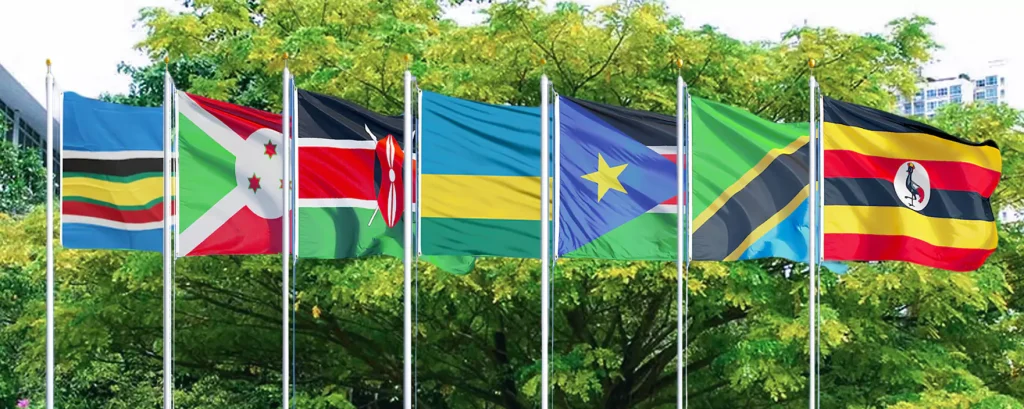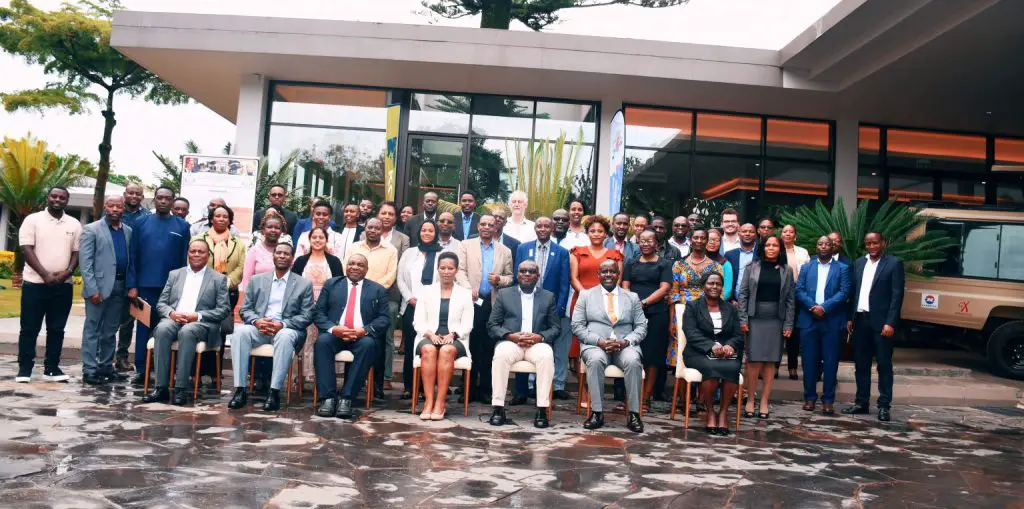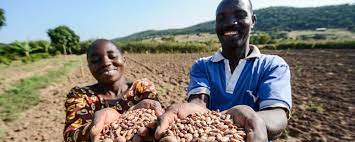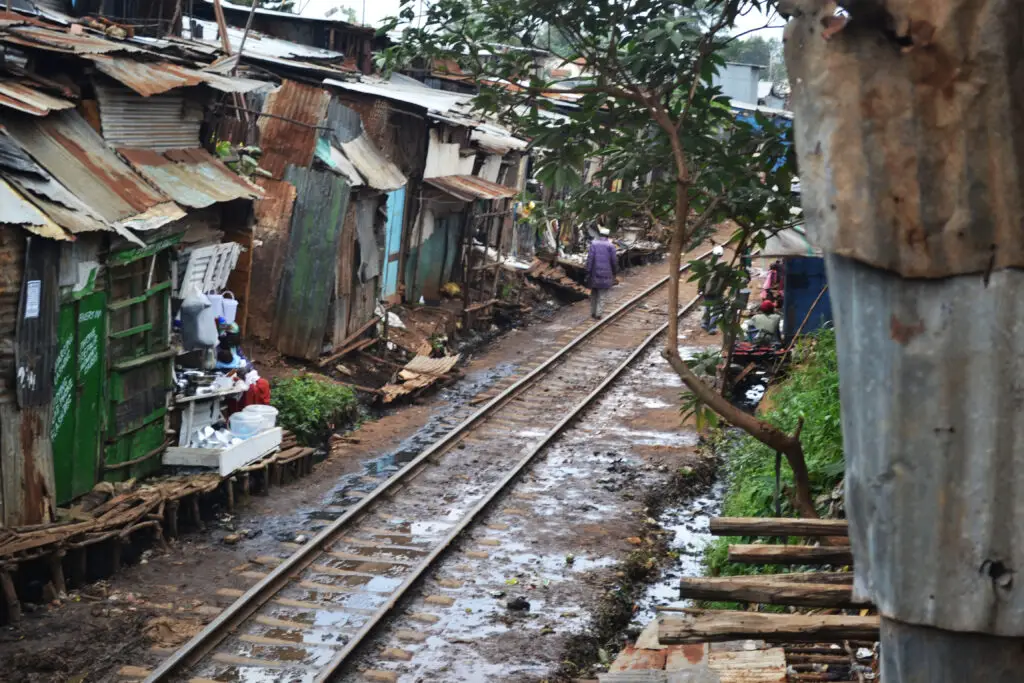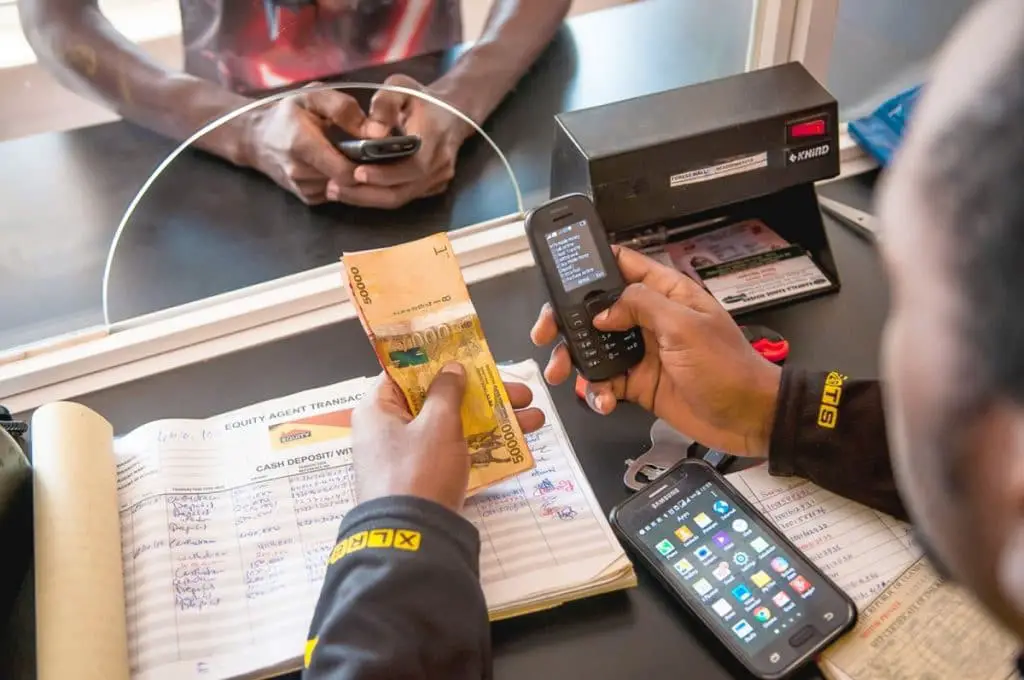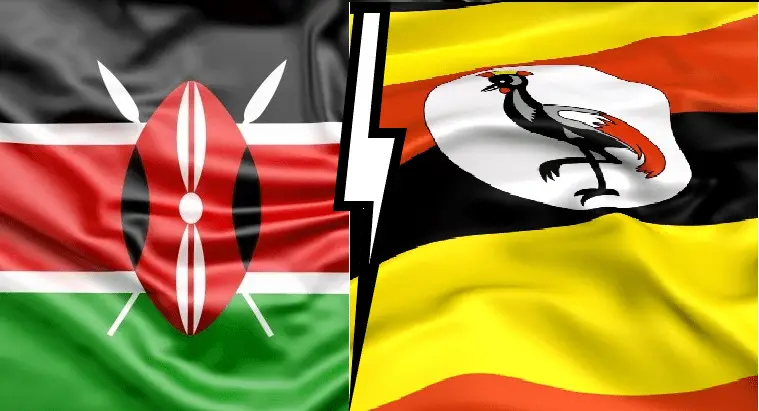- Africa’s new dawn: the rising role of digital and AI in agriculture
- Can Dangote Refinery Transform Africa Energy Ambition
- Gallup Survey: 80 per cent of Kenyan Workers Are Disengaged and Seek New Opportunities
- Madagascar Man Freed from 5KG Tumor After 15-Year Struggle
- How women in Africa are perceived and treated
- Sugar consumption in Kenya to Increase to 1.23 Million Tonnes
- Can Somalia and Turkey Oil deal Bring Change in Somaliland
- Remittances to Kenya dropped to $371.6 million in June, marking a six month low
Browsing: East African Community
With the recent addition of the DRC to the East African region, landlocked countries have found an alternative port of entry in the Atlantic Ocean. The swiftness of trade with two ports of entry and the region’s strategic location will be incomparable to any other region on the continent.
The East African Federation would be the fourth largest country in both population and landmass, trailing after China, India and the United States. President Uhuru Kenyatta says that the federation would have over 300 million people.
The gross domestic product for the region will sum up to US$250 billion, the fourth-largest in Africa and the 34th biggest globally. Since the beginning of the last decade, East Africa has had the fastest growing economy globally. In 2019, the region’s economy grew by about 5 per cent. If the federation continues with this growth rate, the new country would quickly become the biggest …
- There is a huge need for business owners, policymakers, and African leaders, in general, to capitalise on the investment in more research, higher education and science
- Academic institutions need to build skills and knowledge of young professionals in areas of research, innovation, science and technology in order to benefit from the natural resources and improve the livelihoods of East Africans
- Africa has the strongest growing scientific production currently at 38.6 per cent since the start of 2012 with the number of authors subsequently growing at a slightly higher rate of 43 per cent over the same period
The Academic Public-Private Partnership Forum (APPPF) has called for more funding to be availed to Africa’s researchers and innovators. This will largely drive up the continent’s sustainable economic development.
According to data by statista.com, despite Africa comprising 12.5 per cent of the global population, the continent still only accounts for less than 1 …
For starters, this is good news for the landlocked countries. It means that the landlocked countries in the EAC including Uganda, Burundi, Rwanda and South Sudan now have another coastal gateway away from the East African one in Kenya and Tanzania.
In addition, all the partner states have better bargaining power when it comes to trading with other blocs on the continent or internationally.
With the African Continental Free Trade Area (AfCFTA), the deal gets even sweeter.
Continent-wide, fully implementing the AfCFTA will increase intra-African trade with the elimination of duties. Projections show that by just reducing non-tariff barriers (NTBs), intra-African trade could double.…
Since the beginning of the Russia-Ukraine crisis, fertilizer prices have risen by 21 per cent.
It was noted that “the recovery of Africa has been impeded by greater inflation and tighter global financial conditions as well as rising interest rates,”
To counter external shocks, such as the Ukraine crisis, she urged public and private sector partnerships to enhance intra-African agri-food, industry, and service trade. She also urged the continent’s recovery from Covid-19 to get back on track.
When asked if Africa needs a second Marshall Plan, Keita said that Africa already has an effective one, in the AfCFTA, that may help it prepare for unpredictable times.…
So now the government through its Ministry for Agriculture has decided to take action to increase domestic production of edible oils. To do this, the government has developed several strategic approaches including upgrading peasant technology.
This initiative fits into the country’s overall industrialization initiative that targets mainly agricultural mechanization. By increasing funding for the set up of factories and smaller production plants, Tanzania is able to increase its output of edible oils.
However, the country needs to increase seed production hand in hand with increasing its value chain capacity. This is where the Tanzania Agricultural Research Institute (Tari) based in Dar es Salaam comes in. A globally-renowned research institute that develops hybrid seeds among other agricultural research works.…
Traders have been calling for more staff to be posted at the Agriculture Food Authority (AFA) of Kenya to facilitate the approval of applications of maise import from Tanzania to Kenya. Additionally, the traders requested joint testing of aflatoxin to be undertaken in Arusha to reduce the number of rejections at the border.
Peter Musiba explained that the Tanzania Bureau of Standards (TBS) is tackling aflatoxin and has set outstations for testing in Dodoma, Singida and Shinyanga to facilitate the trade of cereals.
Paloma Fernanda, the Chief Executive of Cereals Millers Association, urged for a joint campaign on combating aflatoxin from as early as farm and post-harvest losses in the EAC region.…
Justice Makau’s ruling was as follows, “I find as decided in the Court of Appeal decision, the petitioner has a right to mechanise and adopt technology in its operations. The matter in dispute is therefore effectively concluded and settled in terms stated.”
If the cry of the workers’ Union is true, then this ruling threatens more than 50,000 workers’ jobs and allegedly, already over 10,000 tea pickers have lost their jobs to the machines.
However, the odds are pinned against the peasants, the Kenya Tea Growers Association says the loss of jobs has nothing to do with the machines but rather ‘…tea companies reducing their workforce through natural attrition.…
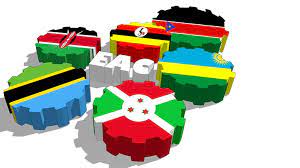 When the Head of the African Continental Free Trade Area Secretariat told an executive panel in Washington, DC the fact that: ‘Africa is importing too excessively and manufacturing too little…’ what was the expected reaction from the orchestrators of so-called ‘Africa trade support programs’ the likes of the Africa Growth and Opportunity Act (AGOA)?
When the Head of the African Continental Free Trade Area Secretariat told an executive panel in Washington, DC the fact that: ‘Africa is importing too excessively and manufacturing too little…’ what was the expected reaction from the orchestrators of so-called ‘Africa trade support programs’ the likes of the Africa Growth and Opportunity Act (AGOA)?
That maybe they will be enlightened to some new ‘fair trade’ concept that they are not aware of or maybe they will be moved to—maybe cut back on their exports to Africa?
Both sides would do well to recall what is buried in the shallow graves, engraved thus: ‘When East African countries suggested ending import of second-hand clothing to boost their own garment manufacturing industries, AGOA contracts forced them to abandon the idea and continue wearing used American apparel.’
When the high ranking African delegate, Wamkele Mene, suggested before top US economic diplomats that ‘…the continent …
Tanzania Telecom charges:
Tanzanians are forced to reach deeper into their pockets as the government has increased the cost of performing mobile money transfers. Effective July of this year, Tanzania’s have seen the cost to send or withdraw money shoot up to the roof.
The government, through parliament past a bill to hike the charges arguing the extra tax is needed for national development projects. The government amended the Electronic and Postal Communication Act (CAP 306) a move that allowed it to impose a levy of on mobile money transactions depending on the amount sent and withdrawn.
 At 17 per cent, Tanzania’s excise rate on mobile phone services is the second-highest in Africa, second only to Zambia.
At 17 per cent, Tanzania’s excise rate on mobile phone services is the second-highest in Africa, second only to Zambia.
The amount is an increase from the earlier 14.5 per cent that was raised back in 2014. At that time it was explained that the levy increase was meant to compensate the government …
Because EAC products have been denied preferential market access as a result of trade sanctions, intra-EAC trade is currently at a low of 15 per cent, which will worsen employment opportunities, market access, and the economies of scale of our sectors for East Africans as a whole.
NTBs not only increase the time and cost of doing business across borders, but they also reduce the competitiveness of EAC-produced goods.
NTBs persist and grow because of the lack of an effective EAC trade dispute settlement system (the EAC Trade Remedies Committee) and the poor speed of resolution of NTBs by the EAC Reginal Monitoring Committee (EMC). …





